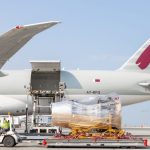WLP expands in Africa
The World Logistics Passport (WLP) is expanding in Africa – with Ethiopia, Botswana, Zimbabwe, Mozambique, Burkina Faso and Guinea registering as Gateway countries.
With countries looking to build back global trade volumes, the benefits to businesses in these countries include a significant reduction in their supply chain costs and improved speed to market for their exports and imports. This is achieved through the over 130 benefits provided by WLP to traders and freight forwarders who expect to have an annual increase in trade volumes on average of up to 5-10 percent.
Mike Bhaskaran, CEO of the WLP, said, “We are excited to see so much interest in the WLP initiative from across Africa. The World Logistics Passport promises to help these economies grow and create jobs by enhancing their export competitiveness and the productivity of their national transport and logistics sectors. More efficient supply chains will make their products more competitive, open up access to new markets and trade routes and increase their national economic resilience.”
Countries that are part of the WLP network are classified in one of two categories: Gateways and Hubs. Gateways are top regional contributors to freight trade and have preferential access to the nearest hub country. There are, at present, two hub countries in Africa – Senegal and South Africa.
Gateway countries are represented in the WLP network by the leading national freight forward association or chamber of commerce.
Ethiopia’s participation is aligned with the Government’s ambitious economic reform program and commitment to upgrade national transport and logistics capabilities, including the recent strategic partnership with DP World to further develop the Berbera Corridor.
Participation of Botswana, Mozambique and Zimbabwe will help deliver benefits to freight forwarders across Southern Africa, taking full advantage of global trade links through South Africa and ongoing upgrades in key regional infrastructure such as the Kazungula Bridge and strategic transport and logistics routes such as the Maputo Corridor.
The entry of Burkina Faso and Guinea builds on Senegal’s participation as a key hub for West Africa, opening up new trade routes and markets to Latin America in the west and the Middle East and Asia to the east through Dubai.
Mike Bhaskaran continued, “International trade is of central importance to the global economy, contributing significantly to development, growth and employment. In the context of the ongoing Covid-19 crisis, the WLP is an integral part of the global response to boost international trade, facilitate access to new markets and increase resilience of the global supply chain.”














